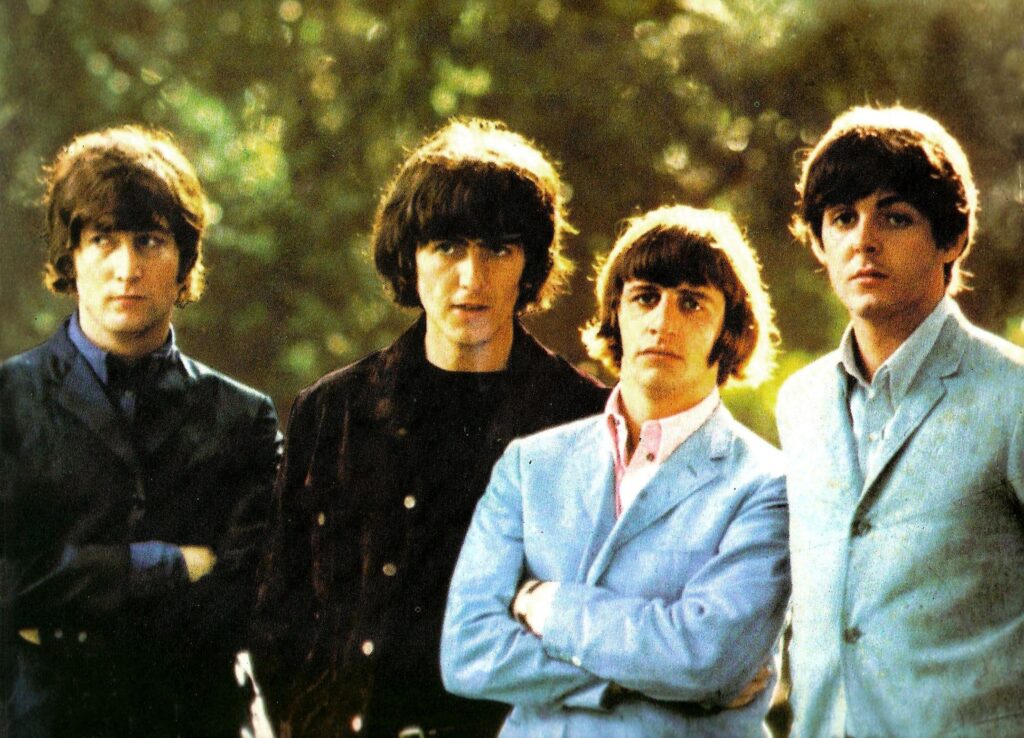

A Poignant Portrait of Loneliness in the Crowd: The Beatles’ Haunting “Eleanor Rigby”
“Eleanor Rigby,” The Beatles’ profoundly moving and strikingly original composition, is a miniature cinematic masterpiece that paints a vivid and heartbreaking portrait of isolation within the bustling backdrop of urban life. Released in 1966 as the B-side to the chart-topping “Yellow Submarine” and also featured on their groundbreaking album “Revolver,” this song, despite its unconventional structure and somber theme, resonated deeply with audiences worldwide, reaching number one in the UK and number eleven in the US. Its enduring power lies in its poignant narrative, its innovative string octet arrangement (absent of traditional rock instruments), and its unflinching gaze at the often-unseen loneliness that can permeate even the most crowded existence. It’s a song that lingers in the memory, a melancholic echo of lives lived in quiet desperation.
The genesis of “Eleanor Rigby” was a primarily Paul McCartney creation, though it evolved through collaboration with the other Beatles, particularly George Harrison, who contributed the memorable line about Father McKenzie darning his socks. McCartney’s initial inspiration reportedly came from the name “Eleanor Rigby,” which simply popped into his head. As the melody and initial lyrical ideas took shape, the character of Eleanor emerged as a lonely spinster, picking up rice after weddings, a poignant symbol of lives lived on the periphery. The introduction of Father McKenzie, writing sermons that no one will hear, further amplified the theme of isolation, highlighting the parallel loneliness that can exist even within the structure of community. The revolutionary string octet arrangement, conceived by George Martin, was a bold departure from the band’s usual instrumentation, lending the song a stark and almost classical feel that perfectly underscored its somber mood. The absence of drums and electric guitars further emphasized the song’s introspective and melancholic nature, making it a truly unique entry in The Beatles’ vast and varied catalog.
Think back to 1966, a pivotal year in music where artists were increasingly pushing creative boundaries and exploring more complex and thematic songwriting. “Eleanor Rigby” stood out as a particularly bold and innovative work, demonstrating The Beatles’ willingness to venture beyond the traditional confines of pop music. Its narrative focus, its character-driven lyrics, and its unconventional arrangement marked a significant step forward in the evolution of popular song. The song’s somber tone and its unflinching portrayal of loneliness were a departure from the more upbeat and often romantic themes of their earlier work, reflecting a growing maturity and a willingness to tackle more complex aspects of the human experience. The stark beauty of the string arrangement and the haunting quality of McCartney’s vocal delivery created a soundscape that was both deeply moving and utterly unforgettable.
The meaning of “Eleanor Rigby” is a timeless and universal exploration of loneliness, isolation, and the often-unseen lives of those on the fringes of society. It’s a poignant reflection on the human need for connection and the quiet tragedy of lives lived without meaningful interaction. The lyrics, with their vivid imagery and empathetic portrayal of both Eleanor and Father McKenzie, invite listeners to consider the often-overlooked individuals who may be living lives of quiet desperation. The unanswered question of “where do they all come from?” and “where do they all belong?” serves as a haunting reminder of the fundamental human desire for belonging and the profound sadness of being adrift. It’s a song that encourages empathy, prompting us to look beyond the surface and consider the inner lives of those around us, acknowledging the shared human experience of longing for connection.
For those of us who remember the release of “Revolver,” “Eleanor Rigby” was a revelation, a song that showcased The Beatles’ remarkable artistic growth and their ability to create music that was both deeply personal and universally resonant. It evokes a sense of quiet contemplation, a melancholic reflection on the often-unseen realities of urban life. It reminds us of the importance of human connection and the profound impact of loneliness on the human spirit. The Beatles’ “Eleanor Rigby” remains a haunting and timeless masterpiece, a poignant portrait of isolation that continues to resonate with its lyrical depth, its innovative arrangement, and its enduring message of empathy and the fundamental human need for belonging. It’s a song that stays with you long after the final notes fade, a gentle reminder to see and acknowledge the Eleanors and Father McKenzies in our own lives.
Video:
